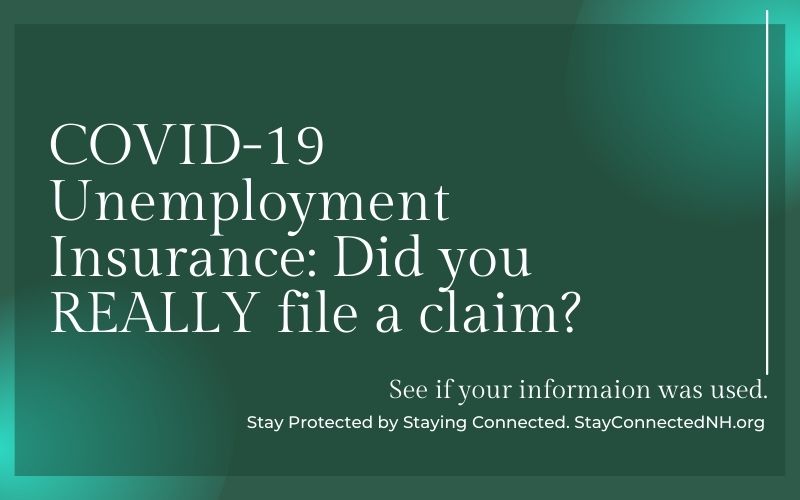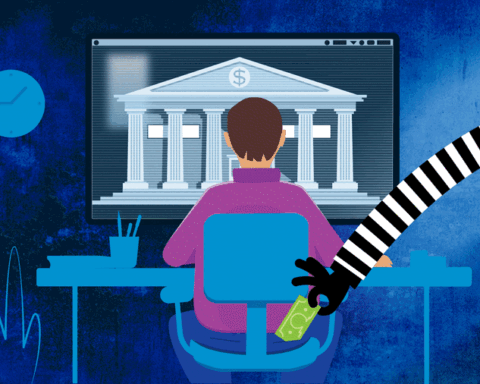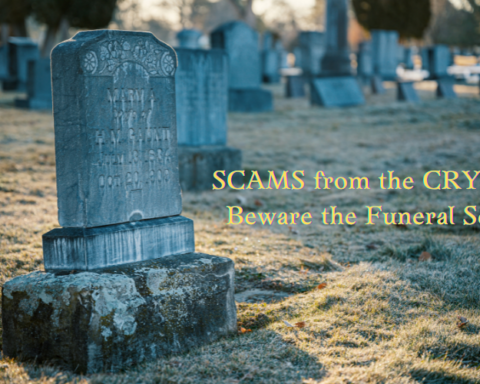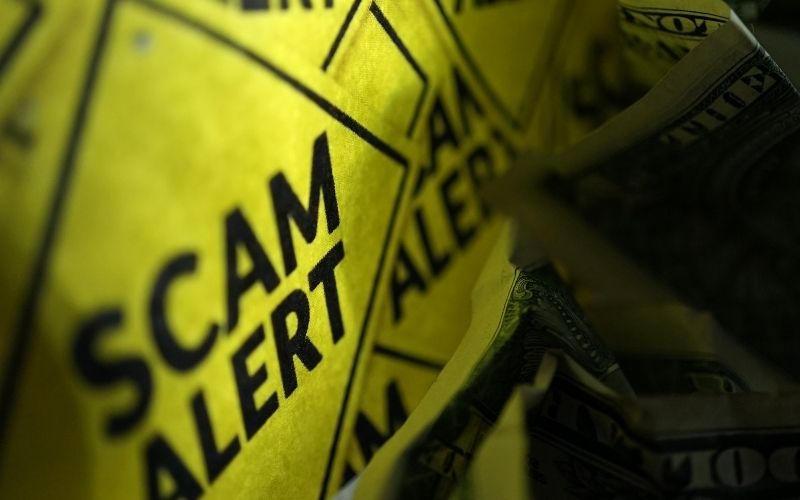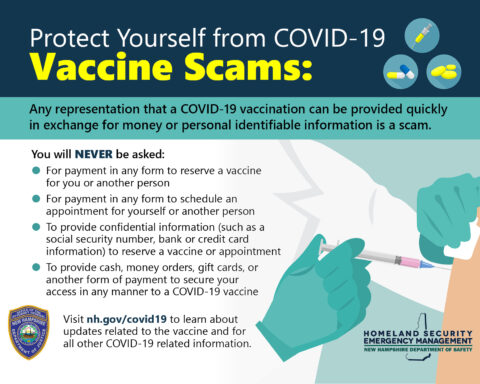As unemployment claims in the United States have surged due to the pandemic, U.S. law enforcement and financial institutions have detected numerous instances of COVID19-related UI fraud. The following is a useful document to indicate red flags that financial institutions should be aware:
If you think as a citizen that you have fallen victim, here is some useful information, courtesy of the NH Department of Justice.
Employment Security Scams
New Hampshire citizens are encouraged to practice increased vigilance when asked to provide personal information over the telephone or via email by entities claiming to provide unemployment benefits as a result of the COVID-19 outbreak.
While we have not yet seen a specific case in New Hampshire, we know that government benefits are an attractive target for scammers and want people to be prepared to prevent themselves from falling victim to this type of scam.
Helpful Tips
- New Hampshire Employment Security (NHES) will never send you a text asking for information.While NHES will call individuals and will send email messages providing and requesting information. They will never send you a text providing or requesting information.
- NH Employment Security will never ask for your credit card information.While NHES does need to request personal information in order to be able to determine eligibility for benefits and to then pay those benefits, the department will never request your credit card information. If such a request is made, immediately hang up the phone or if requested on a website, then immediately close the website and browser and then delete your browsing activity from your PC or smartphone.
- When in doubt hang up and call the hotline.Caller ID can be masked so beware of incoming calls. If you receive a call and feel uncomfortable providing information to the caller because you are unsure of its legitimacy, Hang up immediately and call back the unemployment assistance hotline at (603) 271-7700, to ensure you are speaking with a real representative from New Hampshire Employment Security.
- New Hampshire Employment Security does not partner with any outside organizations in the processing or payment of unemployment benefits.If you receive a call from someone representing themselves as “partnering” with New Hampshire Employment Security to process unemployment claims due to the high volume, this is a scam. Hang up immediately! Only state employees process claims and payments.
- Filing for Unemployment Benefits is free.The State of New Hampshire processes unemployment claims for free. Customers should stay away from any site that charges a fee for this service.
- Return Calls being made during non-traditional business hours.New Hampshire Employment Security is experiencing unprecedented volume on both its website and the hotline. This requires agency representatives to make return calls to people outside of normal business hours, including nights and weekends. Receiving a return call outside of normal business hours is therefore not unusual in this current environment. However, if you are unsure then hang up!
Protect Yourself from Unemployment Benefit Scams
- Hang up the phone if you are uncomfortable. If you previously registered for New Hampshire unemployment benefits at www.nhes.nh.gov/ call back the Unemployment Assistance Hotline at (603) 271-7700;
- Never provide any personal information such as your social security number or date of birth without verifying the person with whom you are communicating;
- Never provide any banking information without verifying the person with whom you are communicating;
- Never deposit suspicious or unexpected checks into your account. Remember that even if your bank makes funds available from a deposit that does not mean the check is good. It could still be fraudulent or forged and you could be responsible to replace those funds;
- Never wire funds to strangers. Make sure you know the person very well before sending them money through a wire service like Western Union or MoneyGram;
- Do not open any unsolicited emails or attachments if they are not from a familiar or trusted source or contain suspicious subject lines or no subject line at all even if from a recognized sender;
- Beware of emails that link to a website that lacks details about who is running the company, where it is based or does not have a phone number to contact the company; and
- If the offer appears “too good to be true”, it probably is.

